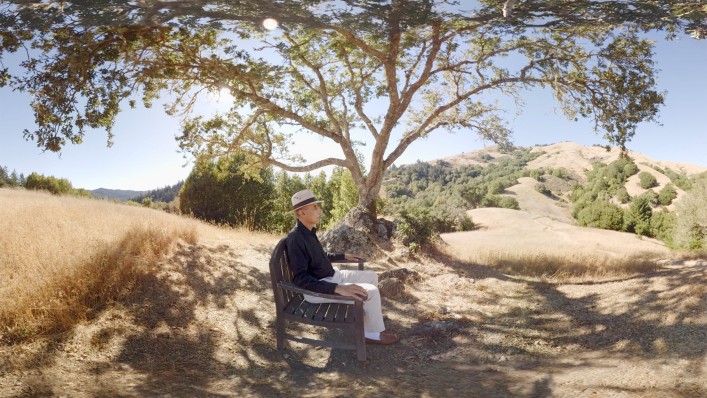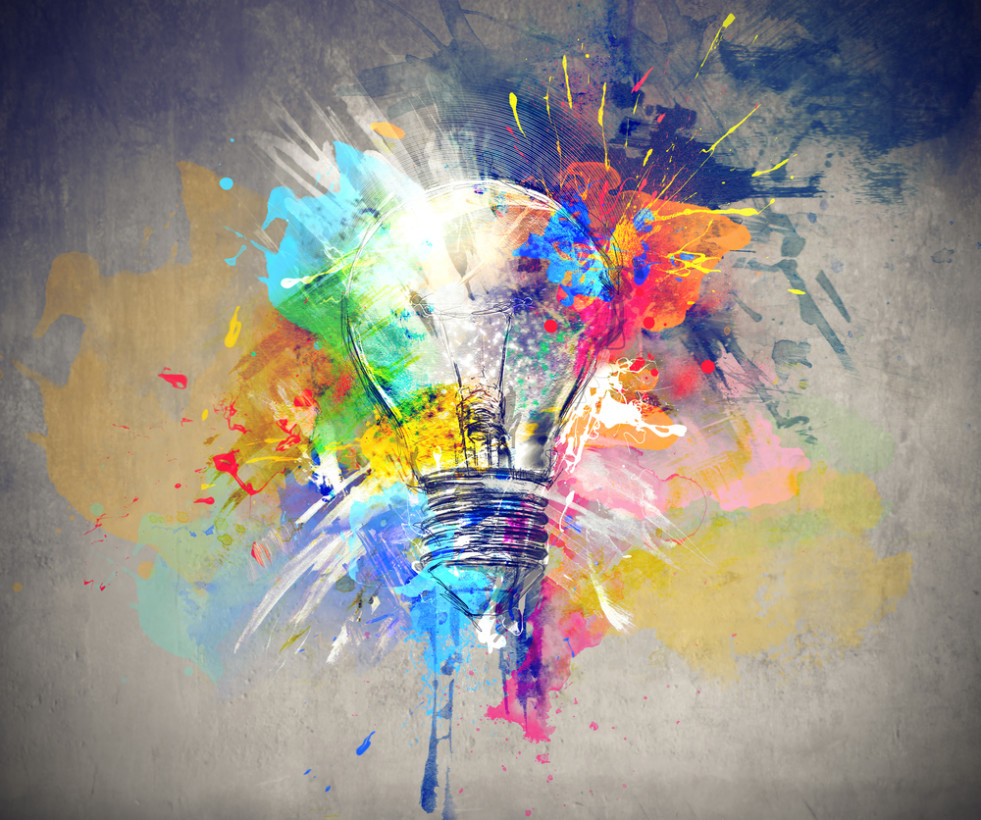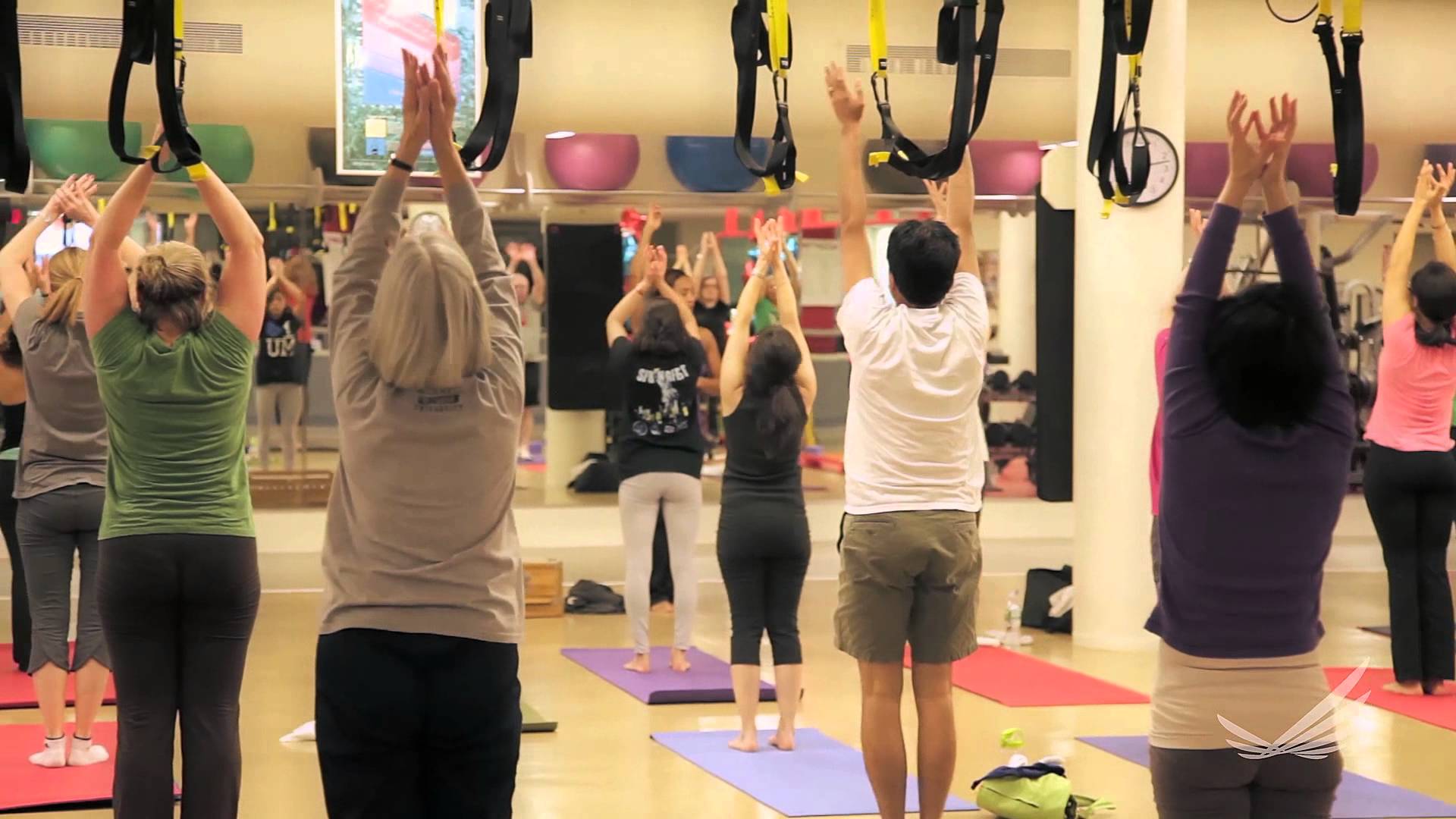In a new immersive experience, anyone can cut ties with reality for a few minutes and find themselves at a Northern California retreat centre.
When talking about the particular stressors of life in the modern age, it’s hard not to point to tech as part of the problem. Technological innovations, it seems, have wormed their way into every corner of our lives. There’s now a smart mirror, for instance, that will analyze your appearance to direct you in how best to carry out your morning beauty routine, and you’d be hard-pressed to find anyone who hasn’t suffered the mental fatigue of realizing they’ve just spent the last hour scrolling through Twitter and Facebook on their smartphones.
But at the same time, tech is becoming part of the solution. Apps like Headspace facilitate daily check-ins and meditation; wearables like WellBe are even going so far as to measure your stress levels for you. The team at m ss ng p eces, a Brooklyn-based production company (the missing letters are intentional), decided to take it a step further.“I’m always thinking about ways in which these new technologies like VR are going to enable us to become more immersed in stories and become better human beings,” m ss ng p eces founder and executive producer Ari Kuschnir tells Fast Company. “I didn’t see enough experiments in VR with anything related to mindfulness.”
VR hasn’t yet crossed the threshold into mass consumption, but Kuschnir and the m ss ng p eces team wanted to find a way to use it as a platform to boost mindfulness and relaxation–and reach as many people as possible. “We were thinking of what could be a good place to start, and landed on a VR experience that could also work as a 360-degree video, featuring a well-known spiritual teacher,” Kuschnir says.
Kuschnir immediately thought of Jack Kornfield, the founder of Spirit Rock Meditation Center in Northern California; he’d been listening to Kornfield’s podcasts for years, and admired his ability to weave stories together. Kuschnir ran the idea by Ivan Cash, a contributing creative director at m ss ng p eces; Cash, in turn, told Kuschnir that he had an uncle who worked at Spirit Rock. The m ss ng p eces team got in touch with Kornfield, sending him a sample VR headset and explaining the concept: to translate the storytelling work Kornfield was already doing on his podcast into a more immersive, visual format. Kornfield was immediately on board.
“VR really is the future–it will become widespread as a way for people to experience something they didn’t know before,” Kornfield says. “It’s a particularly beautiful way to capture what it means to be on a retreat or to come to a meditation center. For a lot of people, those experiences are quite foreign–they may think that it’s out of their comfort zone, or not for them. But what VR does is allow people to have an immersive experience where you feel you are actually present somewhere with people around you, and you get a sense of why people gather together in these places.”
The experience put together by Kornfield and m ss ng p eces–which is now available on YouTube as a 360-degree video, and as a VR experience on Daydream and the couple million YouTube-enabled VR headsets–aims to capture myriad facets of meditation. “There are meditation talks, a nature meditation in the hills of Marin County, a walking meditation, for which we’d encourage people not to actually walk through while wearing the VR headset,” Cash says.
As Fast Company has previously reported, it could take around eight years for VR to reach the mainstream “tipping point”–there were 2 million non-Google Cardboard VR headsets in consumers’ hands at the end of 2016, and it’s expected that there will be 135.6 million in use by 2025. But m ss ng p eces feels it’s important to stay ahead of the curve, and begin to prove VR’s usefulness in democratizing access to truly immersive mindfulness-supporting experiences.
In addition to trying to reach those VR users interested in meditation, Kornfield and m ss ng p eces are also looking to partner with organizations who can bring the experience to people in jails and underserved schools, expanding on the mindfulness training work Kornfield has already been doing in those spaces. “And honestly,” Cash says, “hopefully it inspires more creators to explore the interesting tension, which is that we have such amazing technology, but it’s making us miserable. We want to keep figuring out how to make the right kinds of content and resources to support people being happy and fulfilled, and holistically in a better place.”
From: Fast Company



